[title]
[message]Sama Homes
Handcrafted Kansa Serving Ladle Set: Rice, Sabzi, Curry & Dal
Handcrafted Kansa Serving Ladle Set: Rice, Sabzi, Curry & Dal
20 en stock
Impossible de charger la disponibilité du service de retrait
The set consists of four different types of ladles which are designed to best serve your rice, vegetables, curries and dal.
These hand crafted ladles are made by the traditional Kansara community of Gujarat following the age old technique of Kansa Casting honed over many centuries.
The finer artwork/craft on the handles are a unique specialty of the cluster.
Caution: These are hand made ladles and not machine worked. There would be minor indents, pores and imperfections that cannot be removed and are left as such. Any work on them could impact the integrity and life of the ladles.
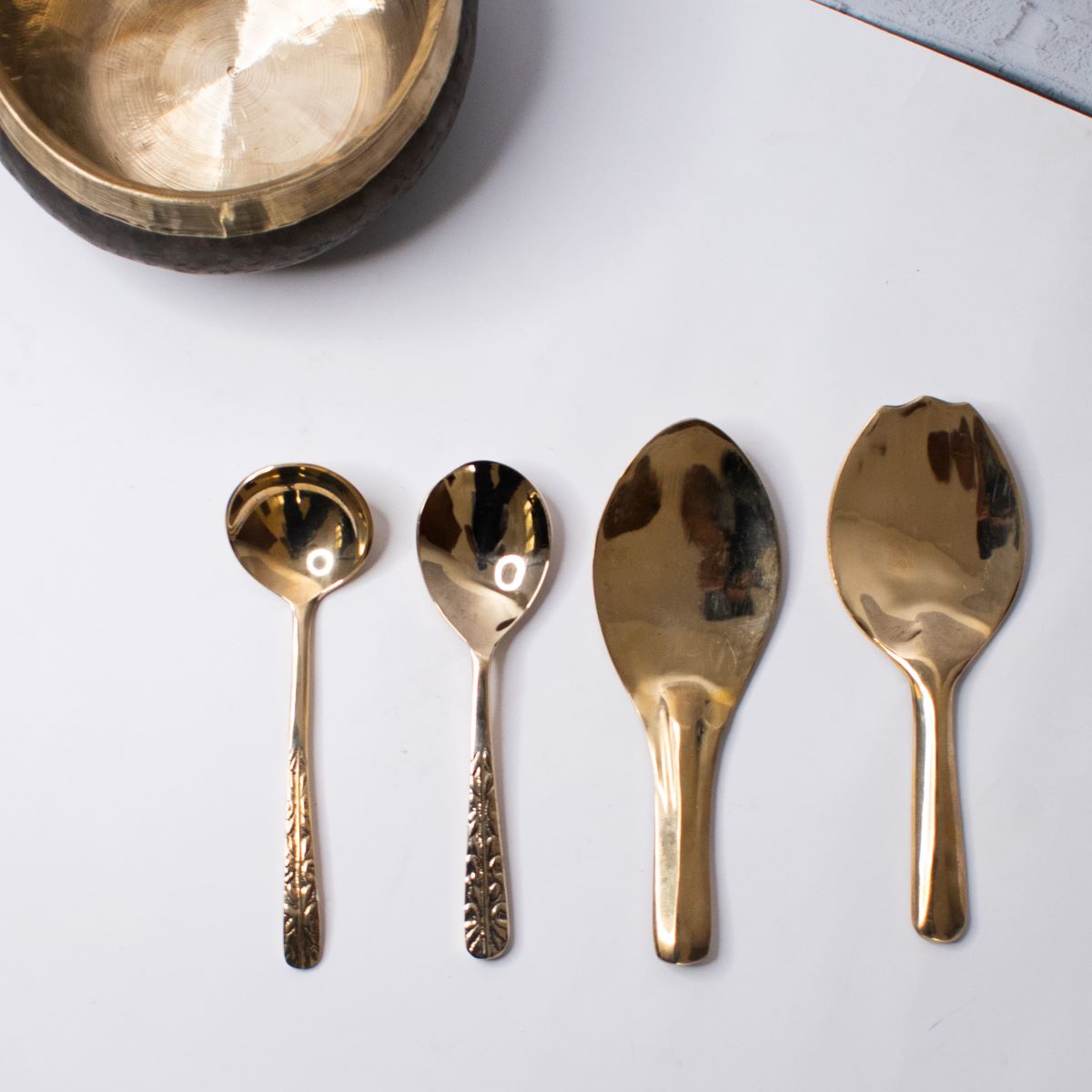
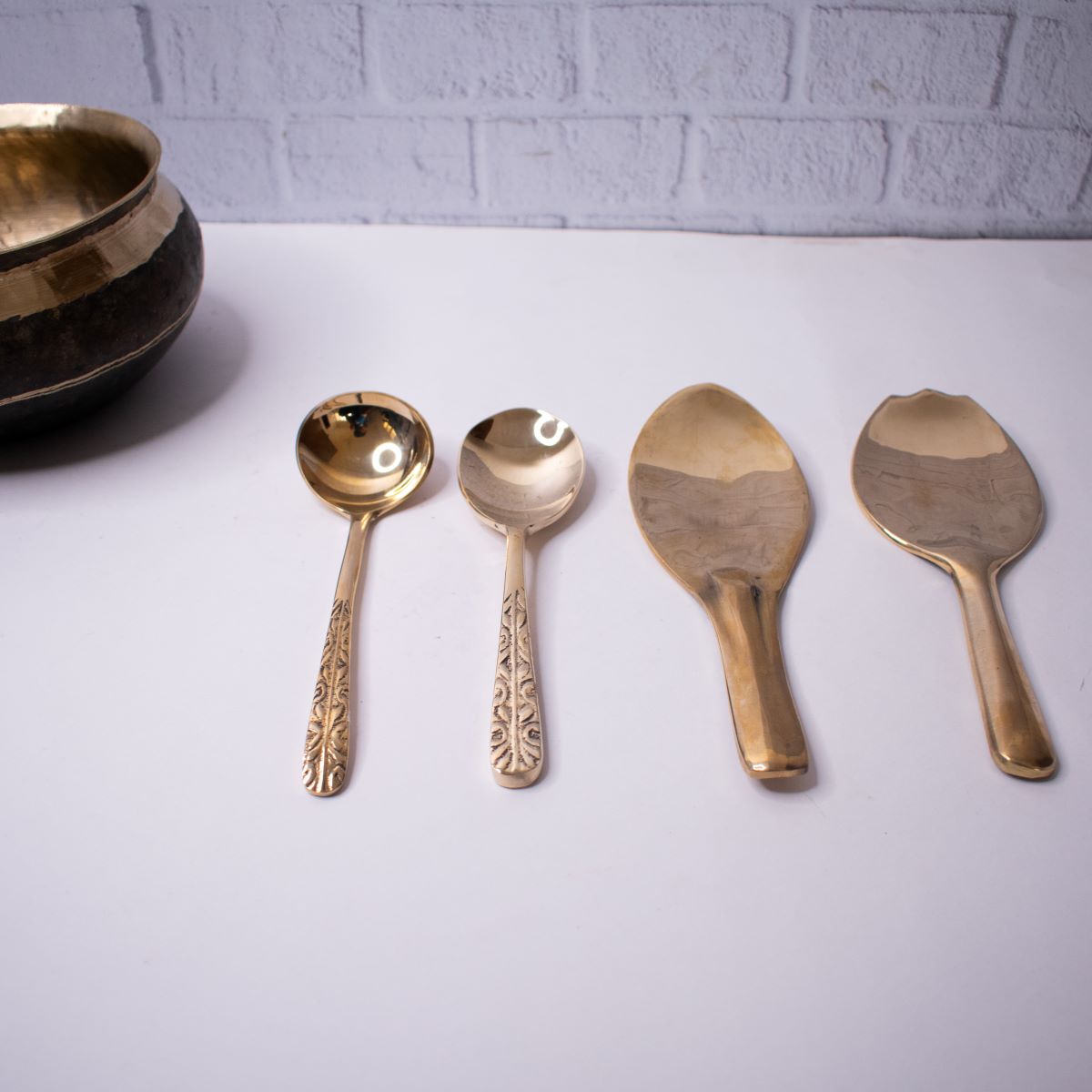
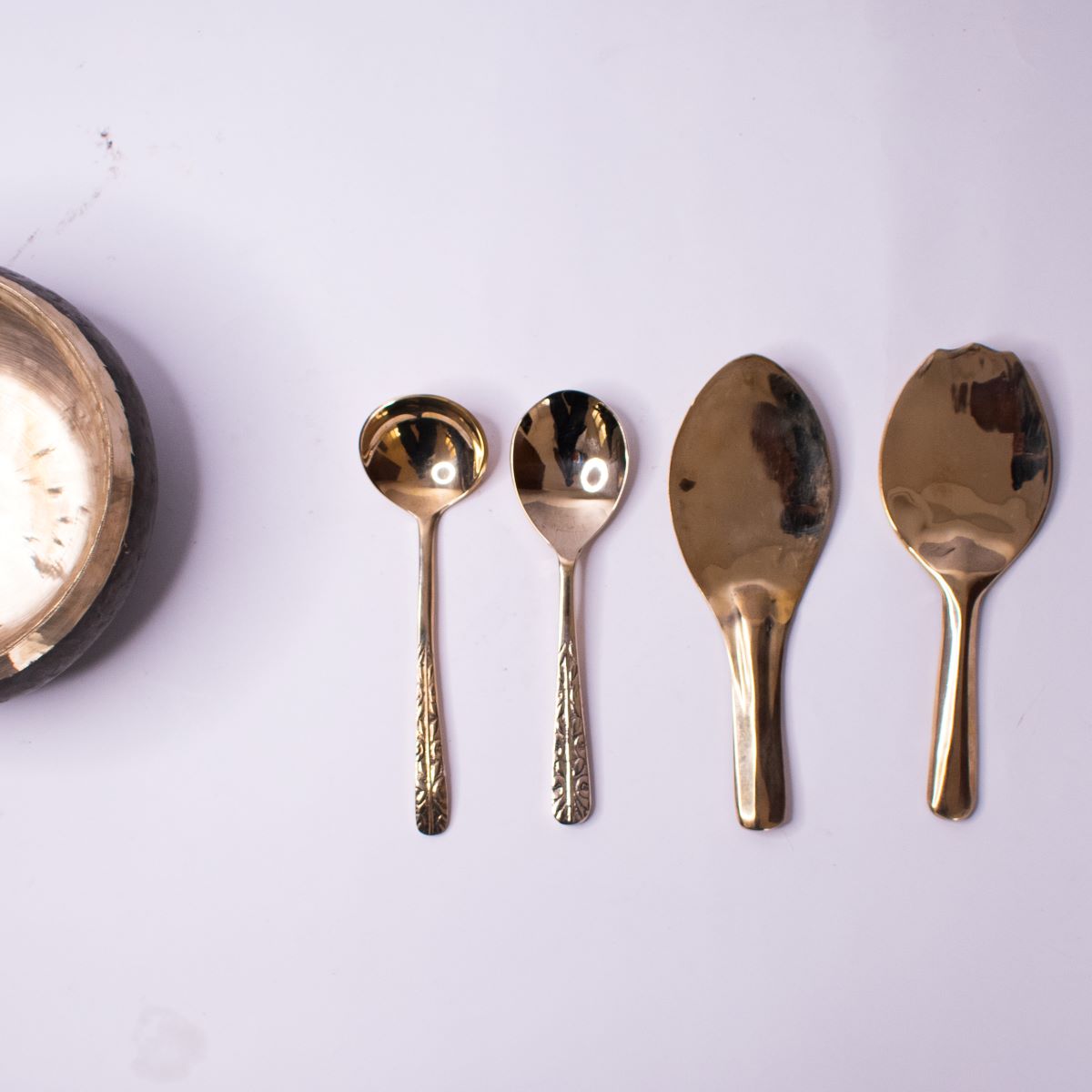
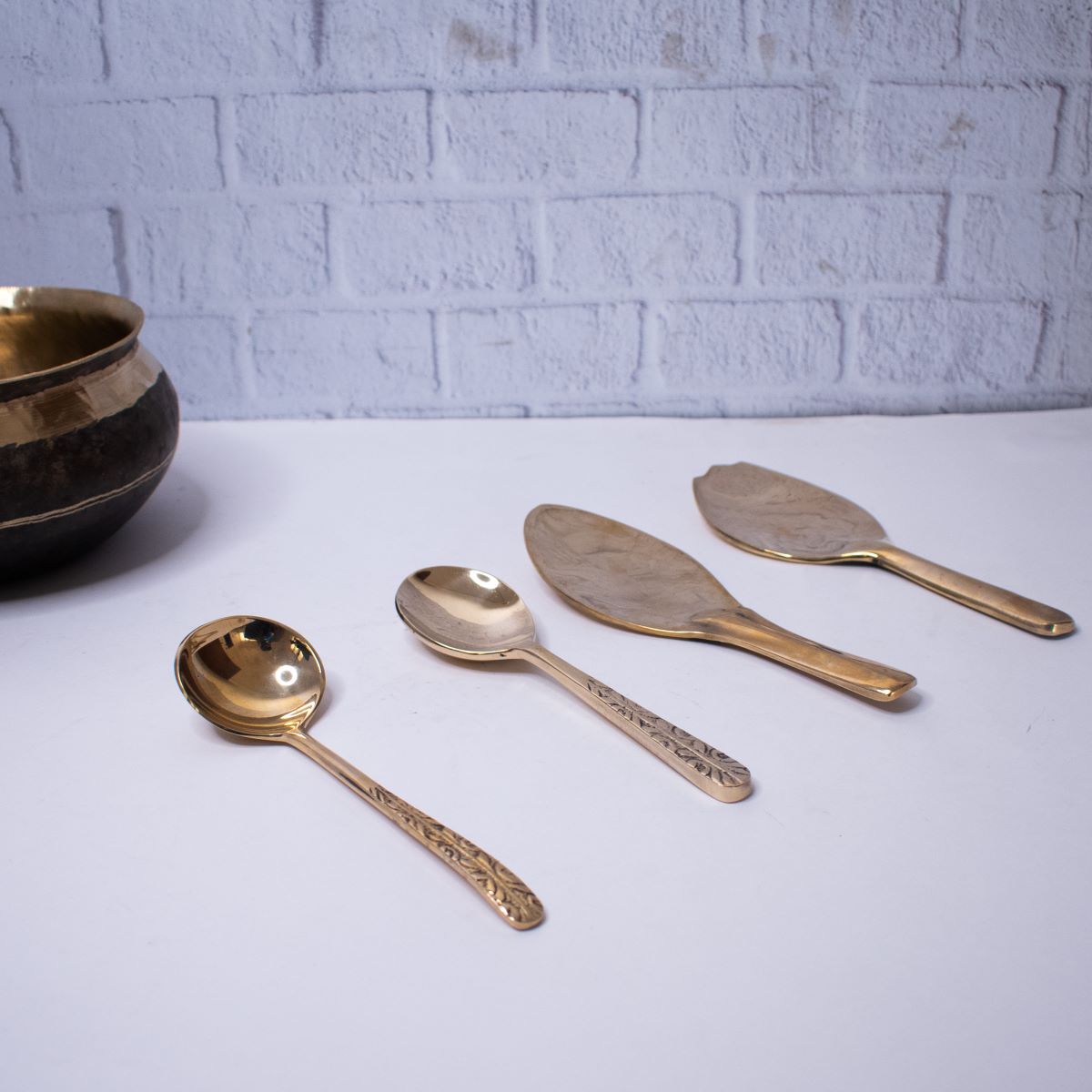
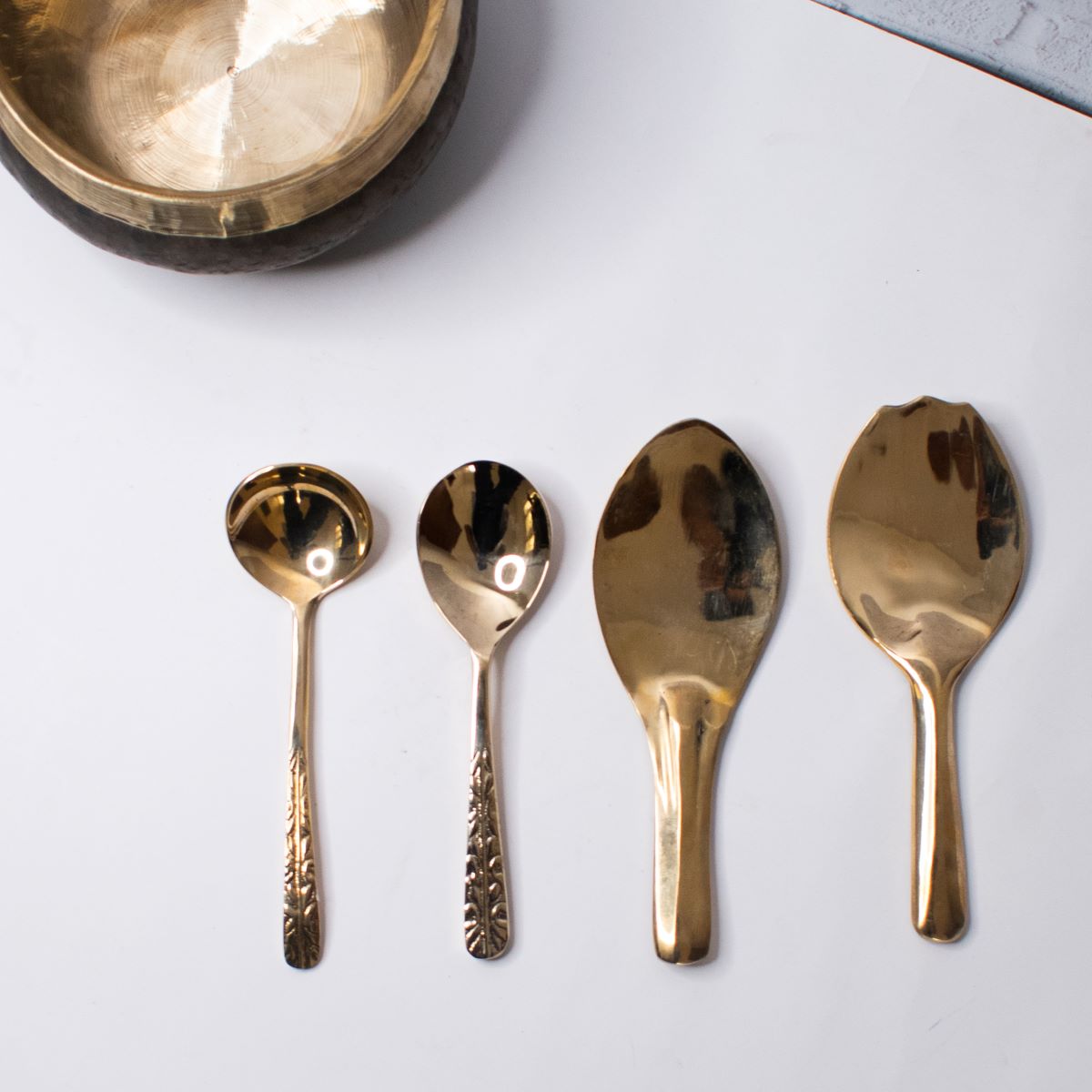

Brass Utensils: A Sustainable Kitchen Choice
Brass, an alloy of copper and zinc, offers a surprisingly eco-friendly option for a variety of household items. Here's how brass contributes to a more sustainable lifestyle. Looking for ways to green your kitchen? Consider brass utensils! These beautiful and functional tools offer surprising sustainability benefits.
Contenu réductible
Benefits of Brass Utensils
- Long-lasting Durability: Brass is a robust metal that can last for generations with proper care. Unlike disposable or flimsy utensils, brass stands the test of time, reducing waste and the need for frequent replacements.
- Reduced Landfill Impact: By choosing durable brass, you divert utensils from landfills, contributing to a cleaner environment.
- Natural Antibacterial Properties: Brass possesses inherent antibacterial properties, which can be beneficial, especially for frequently used cooking tools.
- Heat Conductivity: Brass conducts heat efficiently, ensuring even cooking and potentially reducing cooking times, which can save energy.
How Brass Utensils Reduce Your Carbon Footprint
- Lower Production Footprint: Compared to virgin materials, recycled brass requires less energy to produce, leading to lower greenhouse gas emissions.
- Less Waste, Less Transportation: Durable brass utensils minimize the need for frequent replacements, reducing waste generation and the environmental impact of transportation for new products.
- Multi-generational Use: Brass utensils can be passed down through families, further reducing the need for new production and its associated carbon footprint.
Sustainable Considerations
- Tin Lining: For acidic foods, choose tin-lined brass utensils. The lining protects food from reacting with the brass and prevents metallic taste. Unlined brass is best for dry goods or non-acidic foods.
- Proper Care: Handwashing and occasional polishing keep brass utensils looking their best and extend their lifespan, maximizing their sustainability value.
Embrace a Greener Kitchen
By incorporating brass utensils into your kitchen routine, you're not just adding a touch of elegance, you're making a conscious choice for a more sustainable future. So, ditch the disposables and embrace the beauty and longevity of brass!






